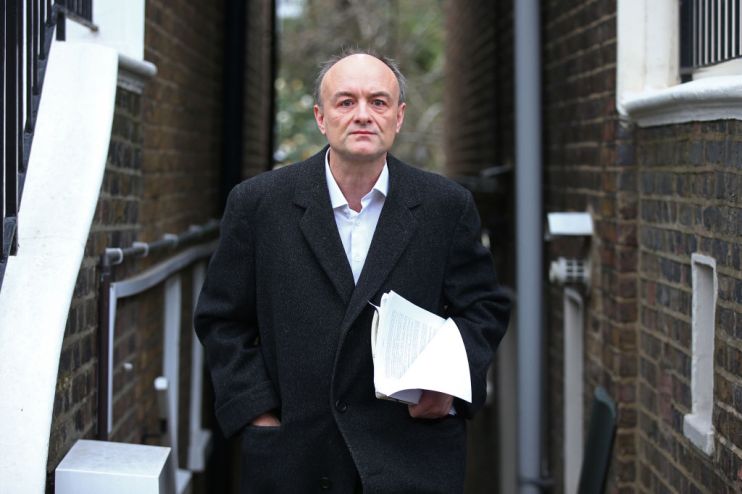Dominic Cummings’ committee hearing shows why he didn’t last in government

Dominic Cummings’ Westminster committee hearing today was a vintage performance. One for the purists, Cummings hit on some of his favourite topics as he lashed out at the Whitehall blob, name dropped obscure scientific figures and made a case for Aria, the UK’s new science agency.
As he spoke of the need for “very odd people” to run Aria and about “the system” controlling civil servants, it felt as if one of Cummings’ infamous blog posts had jumped off the screen and into real life. Unsurprisingly, it was his fierce comments about Matt Hancock that grabbed most of the headlines as he implicitly blamed him for the UK’s Covid failings, while giving him credit for none of its successes.
The hearing was itself a microcosm of Cummings’ tenure in Downing Street and a stark reminder of why he is no longer there. He made many cogent arguments and explained his vision in a convincing manner, but he was also too eager to take swipes at a former colleague in an apparent bid to settle a grudge.
Much of what he said about the UK’s need to improve scientific research and development was interesting, well thought out and well argued. Cummings’ vision of a state scientific agency that is run more like a venture capitalist firm with “extreme freedom” from bureaucratic oversight is the sort of private sector approach too often missing from government.
If the UK is going to diversify its economy and remain a player on the geopolitical stage then state-backed innovation in science and technology must be central, he argues. It’s these sort of broader existential ideas about the future of the UK, and an ability to recognise and ride political trends, that put him in Downing Street in the first place.
For all the talk about Aria, though, the hearing will be most remembered for his attacks on Hancock that felt like revenge for his ousting. These sort of personal attacks seem to be a part of the Vote Leave mastermind’s wider scorched earth approach that largely defined his stint in government.
From illegal prorogations to shadowy briefing wars, it felt like Johnson’s right hand man was always getting into scrapes of some kind. It’s these distractions, and the turmoil they caused behind closed doors, that helped hasten his exit from frontline politics.
For instance, media reports last year suggested Cummings went to war with Johnson’s fiancee Carrie Symonds and had begun briefing against her in the press. He and his Vote Leave clique in Downing Street had reportedly taken to calling Symonds “Princess Nut Nut” and were unhappy with her influence on the Prime Minister. It was also being reported last summer that he was already setting up Hancock to be the fall guy for the UK’s large Covid death rates through a series of unflattering stories in the media.
For any of Cummings’ virtues, it was this kind of internal chaos and poor government communications that appeared to be his downfall. These sort of vendettas and backdoor games cause far too much of a distraction for a government to be able to deliver its core message to the public.
His performance today at the Science and Technology Committee was a sterling reminder of both sides of Cummings and that his more controversial elements will always outshine any of his achievements in government.